Humane Society International / United Kingdom
Issue Type: Farm Animals
Farm animals
Newly released research exposes the horrific and preventable deaths of hundreds of thousands of farm animals
Humane Society International / Canada

MONTREAL—Humane Society International/Canada has released a report, the first of its kind in Canada, detailing the scope of the preventable tragedy of barn fires and how the near total absence of mandatory safety measures has resulted in the deaths of countless farm animals.
Barn fires happen regularly and frequently. In the five-year period between 2015 and 2019, at least 740,000 animals died in barn fires in Canada, and this is a conservative estimate. Despite fires being a regular occurrence, the government does not require that farm buildings include sufficient fire prevention equipment and safety protocols because these structures are generally of “low-human occupancy.”
“It is unacceptable that the animal agriculture industry is not required to better protect animals from dying such horrific deaths,” stated Riana Topan, farm animal welfare campaign manager for HSI/Canada. “Just imagine the suffering of being burned alive, along with thousands of others, with no way to escape. No animal deserves to suffer so inhumanely. We urge building and fire code officials to reduce the risk of barn fires by amending our national construction model codes to require that farms have basic safety features, such as sprinklers and industrial-grade smoke detectors.”
HSI/Canada is calling on the provincial, territorial and federal governments to introduce fire prevention measures specifically for buildings that house farm animals, who are deserving of protection from fire and horrible deaths that can be avoided through basic safety protocols. Barn fires must also be prevented because they pose a risk to human life – putting both farm owners and first responders in harm’s way unnecessarily. Just last year, a fire at a large-scale facility in Manitoba claimed the lives of 27,000 chickens, while another in Quebec killed 700 pigs and sent the farm’s owner into nervous shock.
The Canadian Commission on Building and Fire Codes, established by the National Research Council of Canada, is currently preparing to publish the 2020 editions of the National Building Code and National Fire Code. These model codes will include farm building requirements related to fire protection, structural design and dangerous goods. However, the requirements for large farm buildings are intended to safeguard humans and not animals, who are considered “property.” The updated codes will be adopted by all provinces and territories, who are responsible for regulating and enforcing construction standards.
To read and/or download the report, click here.
To arrange an interview, please call or email the media contact below.
-30-
Media contact: Christopher Paré, director of communications, HSI/Canada – office: 514-395-2914 x 206, cell: 438-402-0643, email: cpare@hsi.org
Humane Society International / Africa
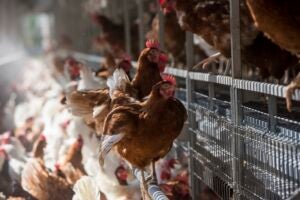
South Africa — City Lodge Hotel Group (CLHG) has become the first African hotel chain to announce a cage-free eggs commitment, after working for two years with animal protection organisation Humane Society International to develop its animal welfare policy. By the end of 2025 CLHG will source exclusively cage-free eggs throughout its entire supply chain, which serves approximately 1.4-million eggs annually. CLHG and HSI will continue to work together on the implementation of this policy.
Ross Phinn, divisional director of operations at CLHG, said: “Food is an important component of our overall offering to guests and we are committed to the switch to cage-free eggs. This is one of several steps that CLHG is taking on its sustainability, environmentally-friendly and responsible tourism journey.”
Leozette Roode, media and outreach manager for HSI-Africa, said: “HSI-Africa has been working with City Lodge Hotel Group for more than two years on their journey to adopting a 100% cage-free egg policy, and we commend the leadership of the organisation for deciding to join the global movement towards higher animal welfare standards. Consumers rely on food companies to ensure high standards of animal care in their supply chains, and CLHG is taking the lead to improve the lives of animals in South Africa’s food system. This move will relieve thousands of egg-laying hens from a life of extreme confinement, and sends a clear message to the egg industry that the future of egg production is cage-free. We are looking forward to working with CLHG to implement this commitment and encourage other food service providers to follow their example.”
Approximately 86% of egg-laying hens in South Africa spend their entire lives confined in wire battery cages, laying egg after egg for human consumption. Each hen is offered less space than the size of an A4 piece of paper, preventing them from fully performing their natural behaviors, such as nesting, perching, dust-bathing, running, flying, wing-flapping, and even freely walking. Studies show that battery caged hens suffer from psychological stress as well as physical harm. HSI is working globally to end the intensive confinement of egg-laying hens in cages. Businesses are increasingly realizing the economic value of more humane purchasing policies and farms are moving to meet the higher welfare requirements of their customers.
CLHG joins hundreds of international food corporations that have already committed to switching to exclusively cage-free eggs. HSI has worked with Unilever and Nestlé, the largest food companies in the world, on their cage-free policies, as well as two of the world’s largest food service providers, Sodexo and Compass Group, on their new global animal welfare and corporate social responsibility policies. After working with HSI-Africa, McDonalds South Africa committed to switching to 100% cage-free eggs in 2017. For more information on other HSI corporate cage-free commitments, see https://cagefreeworld.org/global/.
Fast facts:
- With a gross turnover of R10.77 billion at producer level, eggs remain the fourth largest animal product sector in agriculture in South Africa.[1]
- Approximately 7.1 billion eggs are produced in South Africa in a year (2017).[2]
- Over 25 million egg-laying hens are raised in South Africa,[3], approximately 86% of whom are confined in battery cages.[4]
- As well as enduring psychological stress, battery hens also endure physical harm including bone weakness, feather loss, and in some cases metabolic disorders, including disuse osteoporosis and liver damage.[5]
ENDS
MEDIA CONTACT:
Leozette Roode, HSI-Africa media and outreach manager, e: LRoode@hsi.org, t: +27 71360 1104
Susan Reynard, communications & PR consultant (sreynard@clhg.com / sreynard.joburg@gmail.com ; 083 446 0544) on behalf of: City Lodge Hotel Group
[1] https://www.sapoultry.co.za/pdf-statistics/Egg-industry-stats-summary.pdf
[2] https://www.sapoultry.co.za/pdf-statistics/Egg-industry-stats-summary.pdf
[3] http://www.sapoultry.co.za/pdf-statistics/egg-industry.pdf
[4] www.internationalegg.com/stats
[5] https://www.hsi.org/wp-content/uploads/assets/pdfs/scientists-and-experts-on-battery-cages-and-laying-hen-welfarehsi.pdf
Humane Society International / Global

HSI’s Farm Animal Welfare and Protection program works with producers, restaurant companies, supermarkets, manufacturers, food service providers and hotel chains to transition their animal agriculture production and supply chains to higher welfare systems. Financial institutions such as commercial banks, investment management companies, pension funds and insurance companies are key stakeholders in the supply chain that often go unnoticed, and yet their funding often makes production possible. Increasingly, financial institutions are updating their lending, insuring and investing policies to address the conditions under which farm animals are bred, raised, transported and slaughtered, often as part of their Environmental, Social and Governance programs. More and more financial institutions are incentivizing higher welfare production methods and, in some cases, making production methods that rely on confining farm animals in small enclosures ineligible for financing.
HSI works to ensure that the world’s most influential financial institutions are aware of the significant body of science, public policy and growing market demand that supports the trend towards higher animal welfare standards, and to encourage them to take greater responsibility for animals in the meat, dairy and egg supply chains that they finance, invest in and insure. HSI’s team of attorneys, animal welfare scientists, experts and campaigners around the world seeks to provide resources and raise awareness about the economic, regulatory and reputational risks of financially supporting intensive confinement of farm animals.
Private financial institutions and pension funds
HSI briefs private financial institutions and pension funds on animal welfare changes in the food industry and has organized meetings and events in Australia, Belgium, Brazil, Canada, Denmark, France, Hong Kong, India, Indonesia, Italy, Malaysia, Mexico, the Netherlands, Norway, Singapore, South Africa, Sweden, Switzerland, Thailand, Ukraine, the United Kingdom and Vietnam.
- Worked with UK-based Standard Chartered on the first-ever cage- and crate-free policy by a global financial institution. (2018)
- Consulted with Singapore’s DBS Bank on South East Asia’s first-ever sustainability linked loan to a Small Medium Enterprise, a S$27 million loan to an egg producer for construction of a cage-free egg facility. (2019)
The FARMS Initiative
In 2019, HSI and two other animal protection organizations established the Farm Animal Responsible Minimum Standards (FARMS) Initiative, the world’s first initiative designed specifically to provide technical resources for financial institutions to assist them in managing their portfolios of food businesses.
- HSI and other members of the FARMS Initiative finalized Responsible Minimum Standards (RMS) for five of the most commonly farmed animals: beef cattle, chickens raised for meat, dairy cattle, laying hens and pigs. (2019)
- The FARMS Initiative and the RMS were included as a “Key Resource” in the United Nations Environmental Programme Finance Initiative’s Principles for Responsible Banking Guidance Document. (2019)
International finance institutions
HSI engages with the most influential IFIs, including the International Finance Corporation (IFC), the World Bank Group, the European Bank for Reconstruction and Development, the European Investment Bank, numerous EU member state development banks, and government-supported agricultural banks in Brazil, India, Mexico, the Philippines, South Africa and Viet Nam.
- Contributed to the IFC’s Good Practice Note on Improving Animal Welfare in Livestock Operations.
- Successfully advocated for increased animal welfare standards during consultations for the World Bank Group’s updated Environmental and Social Policy.
Entities supporting financial institutions
HSI supports entities such as Environmental, Social and Governance (ESG) research and reporting companies, standard-setting bodies, on-farm certifiers, and inter-governmental organizations such as the World Organisation for Animal Health (OIE), the United Nations Environmental Programme (UNEP) and the Food and Agriculture Organisation of the United Nations (FAO), in order that their work reflects science-based animal health and welfare standards.
- Official collaborating organization with the FAO’s Gateway to Farm Animal Welfare program.
- Member and former Chair of the International Coalition for Animal Welfare, which represents non-governmental organizations at the OIE.
Humane Society International / Mexico
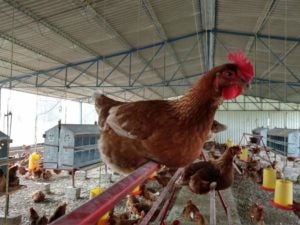
MEXICO CITY—Friday, October 11, is World Egg Day, and Humane Society International, one of the world’s largest animal protection organizations, wants to draw the attention of Mexicans to the reality of egg production – in Mexico and globally – and inform consumers how they can help improve the welfare of millions of hens. Watch our World Egg Day video.
Around the world, more than 7 billion hens are raised per year. Mexico is the fourth largest egg producer in the world with 156 million laying hens.
In Mexico, the vast majority of hens spend their entire lives crammed in metal cages, where they cannot stretch their wings or walk. The space per hen in these cages is less than a letter-sized sheet of paper, and the restriction is so severe that hens usually develop abnormalities in their bones due to their inability to move, and experience stress and frustration by not being able to perform their natural behaviors.
Hens are sentient, intelligent and sociable animals. Scientific studies have shown that they can count; they anticipate the future, which in turn affects their decision-making; they empathize with their chicks; and they enjoy social activities such as dust-bathing.
Vivian Argüelles, animal behavior and welfare specialist for HSI/Mexico, said, “In the wild, chickens spend their day scratching and pecking the ground in search of food. They dust-bathe to keep their feathers clean and healthy. They look for different places to lay their eggs, and at night they sleep on tree branches to keep themselves protected from predators. In cages, hens cannot do any of these things.”
Several countries have totally or partially banned the use of cages for egg-laying hens, including the members of the European Union, Bhutan, India and New Zealand. In the United States, several states, such as California and Washington, have passed their own bans.
“In recent years, growing concern about and the rejection of the intensive confinement of egg-laying hens have mobilized companies, governments, universities and organizations to develop and implement alternatives that offer better welfare conditions to these animals,” Argüelles said.
Among the alternatives available in the Mexican market, there are cage-free production systems, where hens live in closed sheds and have nests in which to lay their eggs, elevated perches where they can rest, litter to scratch, peck and dust-bathe and enough space to walk, stretch their wings and fly. In free-range systems, hens also have access to an outside area where they can exercise, sunbathe and receive greater stimulation from their environment.
In Mexico, cage-free eggs are already available in supermarkets, and dozens of companies in the food industry have made commitments to buy only cage-free eggs in their supply chains by 2020, 2022 or 2025 at the latest. These companies include Grupo Bimbo, Toks, CMR, McDonalds and 100% Natural, to name a few.
Humane Society International works with food industry companies on the adoption and implementation of their cage-free policies and with poultry farmers to achieve a successful transition. The shift towards systems of greater animal welfare will continue, as more consumers say, “No” to cages and, if they consume eggs, choose cage-free.
END
Media contact: Laura Bravo, laura@labcomunicacion.com.mx, 04455 54556 1476
About Humane Society International
Humane Society International and its partner organizations together constitute one of the world’s largest animal protection organizations. For more than 25 years, HSI has been working for the protection of all animals through the use of science, advocacy, education and hands on programs. Celebrating animals and confronting cruelty worldwide – on the Web at hsi.org
Humane Society International / United Kingdom
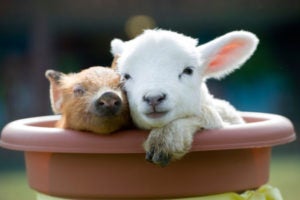
LONDON–Around the world, billions of animals suffer for our food, fashion, beauty and entertainment. Many of them lead deprived, miserable lives confined in unnatural conditions or are subjected to deliberate cruelty. It doesn’t have to be that way. By changing our lifestyles to make more compassionate choices, we can all be animal defenders. This World Animal Day on 4th October, global animal charity Humane Society International shares its top tips for preventing animal suffering.
1. Eat less / no meat and dairy
With more than 80 billion land animals reared and slaughtered globally for food every year, not to mention the nearly 3 trillion fish pulled from the ocean and countless more raised on aquatic factory farms, industrial scale animal agriculture is not only one of the biggest animal welfare issues on our planet, it is also one of the leading contributors to climate change and deforestation. For example more than a third of all British egg-laying hens are still locked up in cages, confined to a space not much bigger than a sheet of A4 paper.
By switching to a more plant-based diet, we can spare animals from suffering on factory farms, reduce water and air pollution, as well as help combat climate change through reducing the carbon footprint of our food choices, and conserve precious planetary resources. Moving towards a more plant-based plate also benefits our health as diets high in fruit and vegetables reduce the risk of developing cardiovascular disease, type 2 diabetes and obesity.
2. Choose cruelty-free cosmetics
Hundreds of thousands of animals still suffer and die each year around the world to test shampoo, mascara and other cosmetic products and their chemical ingredients. Terrified mice, rabbits, rats and guinea pigs have substances forced down their throats, dripped into their eyes or smeared onto their skin before they are killed. Cosmetic animal tests are archaic chemical-poisoning experiments devised more than half a century ago, such as rodent “acute toxicity” tests (1920s), rabbit eye and skin irritation tests (1940s) and guinea pig skin allergy tests (1950s). By contrast, modern non-animal methods are faster, more accurate at predicting human responses, and less expensive than the animal tests they replace.
HSI and our partners are leading the global effort to ban cosmetic animal testing in the world’s largest and most influential beauty markets. Our #BeCrueltyFree campaign has been instrumental in driving the European Union to become the world’s largest cruelty-free cosmetic market, and in securing subsequent bans in India, Taiwan, New Zealand, South Korea, Guatemala, Australia and in seven states in Brazil. Nearly 40 countries so far have banned cosmetics animal testing.
3. Say no to exploiting animals for entertainment
Around the world, many thousands of animals are exploited for entertainment, from the slow-death sadism of bullfights and cockfights to the neglect and mistreatment of captive marine and land-dwelling wildlife kept for display. The suffering of animals only continues for as long as the public pays to watch, so we can all help by not participating. Bullfights are not “fair fights,” but highly staged forms of government-subsidized animal cruelty that perpetuate the idea that the torment and killing of animals for amusement is acceptable, so please don’t attend these events when in Spain, France or elsewhere. Up to 8,000 lions suffer in captivity in South Africa, bred in appalling conditions for the lion cub petting industry in which tourists pay to bottle feed and take selfies with cubs. Ethical tourists have the power to shut down this industry by removing their custom. Wild animals in circuses, traveling shows and attractions often receive insufficient water, food and shelter, lack veterinary care, can be subjected to repetitive and stressful training, and can spend hours chained or confined. Camels, elephants, donkeys and horses used for tourist rides and safaris are often malnourished and physically abused, and suffer open wounds. Elephants are often stolen from the wild when young, illegally trafficked, broken after capture and punished with bullhooks. They are forced to carry excessive weight, suffer sores and diseases, and receive inadequate care. Whales and dolphins also suffer for entertainment – the natural habitat of orcas and other marine mammals simply cannot be replicated in captivity, and swimming with dolphins increases demand for captive animals, including from brutal “drive fisheries” such as the Taiji hunt in Japan.
4. Reject ‘delicacy’ meat
Across Asia, around 30 million dogs and 10 million cats are brutally killed for meat, most of them stolen pets or strays grabbed from the streets. In South Korea dogs are raised on farms and killed by electrocution; elsewhere in Asia they are usually bludgeoned, hanged or more rarely, boiled alive. In China, Vietnam and Indonesia, hundreds of dogs and cats can be crammed onto a single truck, driven for hours or days without water, food, protection from the extremes of cold and heat, and many suffering broken limbs, shock and disease. The World Health Organization warns that the trade, slaughter and consumption of dogs poses human health risks from trichinellosis, cholera and rabies. More than 70 million sharks are also killed annually for shark fin soup. The trade involves cutting off a shark’s fin, often while it is still alive, and dumping the animal back into the sea to die slowly. Don’t be tempted to eat shark fin soup, or dog or cat meat as “bucket list” items when travelling, as it merely perpetuates this brutal and often illegal trade.
5. Don’t wear fur
Millions of foxes, mink, raccoon dogs, rabbits and coyotes die every year for fashion. Confined in small, wire-mesh cages on factory farms or captured by painful metal traps in the wild, their fur is turned into frivolous keychain trinkets or trim on coats and hats. The average life span of an animal intensively farmed for fur is just eight months, after which mink will be gassed and foxes and raccoon dogs will be electrocuted. These terrible conditions can create psychological disorders, causing the animals to constantly pace and circle the boundaries of their cramped space, as well as fighting between cage mates and even cannibalism. Fur – and leather – are also incredibly polluting industries. The dressing and tanning processes, which stop the animal’s skin and pelt from decomposing as they would naturally do, use toxic chemicals such as formaldehyde, cyanide, lead and chromium which can be released into waterways and devastate wildlife. These products are only natural whilst they are still on a living animal, after that the processes used to preserve and dress leather and fur are anything but earth-friendly. For the estimated 100 million animals killed for fur, life is typically a miserable existence. The future of fashion is compassion, with cruelty-free alternatives becoming more popular than ever with ethical consumers.
ENDS
Media contact: United Kingdom – Wendy Higgins whiggins@hsi.org
LIONSROCK Big Cat Sanctuary embraces global plant-based food trend and joins HSI’s Green Monday South Africa movement
Humane Society International / Africa
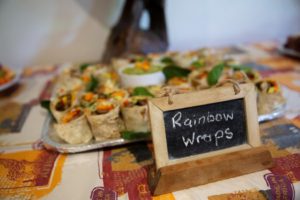
JOHANNESBURG—FOUR PAWS South Africa and LIONSROCK Big Cat Sanctuary have teamed up with Humane Society International/Africa to join the global movement towards more plant-based, sustainable food by launching a meat-free Monday campaign alongside the opening of the sanctuary’s new restaurant.
The restaurant will offer 100% meat-free meals (of which 80% will be vegan) every Monday, and a selection of these plant-based dishes will be available on a daily basis. The new earth-friendly menu will launch on World Animal Day, 4 October 2019, to raise awareness of the destructive impact large-scale animal agriculture has on the planet and our wildlife, such as deforestation, drought, pollution and climate change.
The restaurant’s decision to introduce more plant-based options was inspired by HSI/Africa’s Green Monday SA meat-reduction initiative, encouraging South Africans to eat plant-based at least one day every week to improve their health, reduce their carbon footprint and make a positive difference to the lives of farm animals. HSI/Africa provided plant-based culinary training to LIONSROCK Big Cat Sanctuary’s chefs to help develop the new green menus.
Leozette Roode, media and outreach manager for HSI/Africa, said: “Many South Africans are aware of the negative impacts of a meat-based diet on their health and the planet, but most have not considered the implications of their food-choices on our wildlife. Animal agriculture is a leading cause of habit destruction and wildlife extinction, so reducing our meat consumption and eating more plant-based meals is something everyone can do every day to help the planet. Reducing or replacing meat allows us to farm more sustainably, reduce our carbon and water footprints, and help save animals – including farm animals, aquatic species and wildlife. By joining HSI/Africa’s Green Monday SA campaign and serving 100% meat-free meals, FOUR PAWS and LIONSROCK Big Cat Sanctuary are spreading the vital message that we can stand up for animals every time we sit down to eat.”
LIONSROCK Big Cat Sanctuary in Bethlehem was established by the animal welfare organization FOUR PAWS South Africa in 2006. Fiona Miles, director of FOUR PAWS, said: “We are committed to joining the Green Monday SA movement and reducing meat consumption at LIONSROCK Big Cat Sanctuary – giving our guests the opportunity to help even more animals. We are extremely excited to add plant-based dishes to our menu that are not only tasty, but healthy and sustainable too.”
Animal agriculture is one of the leading contributors to climate change and deforestation which impacts the survival of wildlife globally. With more than 1 billion land animals reared and slaughtered in South Africa for the food industry every year, industrial scale animal agriculture impacts our wildlife in detrimental ways.
Four ways in which a meat-based diet kills wildlife:
- Raising livestock and growing the crops used to feed farm animals require vast amounts of arable land. Often wildlife-rich areas (such as the Amazon rainforest, that homes over 3 million species of plants and animals) are destroyed to create space for monocrops like soy and maize. This deforestation leads to habitat loss and destruction of wildlife species.
- Greenhouse gases like carbon dioxide, methane and nitrous oxide are released during meat, egg and milk production. In South Africa, animal agriculture accounts for 60% of total agricultural carbon dioxide. These gases increase the chances for severe weather events like droughts and fires. Many wildlife species are suffering due to a lack of water in the extreme droughts South Africa has faced over the past couple of years.
- Animal agriculture pollutes our water when animal manure, leftover animal feed and chemicals used to grow crops are flushed into our water systems. In some areas, this causes eutrophication in our water – an increased production of algae and phytoplankton that leads to algal blooms. These blooms produce deadly toxins that kill fish, marine mammals and seabirds and harm humans and wildlife.
- To protect their livestock from being hunted by big cats and other carnivores, farmers often implementcruel lethal predator control methods using traps and poison. Many predators are also shot or trapped and killed when approaching livestock farms.
We can all stand up for animals every time we sit down to eat by reducing the number of animal products we eat.
For more information about Green Monday SA and the programs implemented in South Africa, visit greenmondayza.org.
ENDS
MEDIA CONTACTS:
Humane Society International/Africa: Leozette Roode, media and outreach manager, 0713601104, lroode@hsi.org
FOUR PAWS South Africa: MJ Lourens, head of communications, 082 922 9046, mj.lourens@four-paws.org
Humane Society International / Brazil
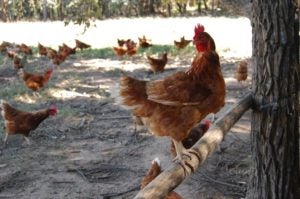
SÃO PAULO—Makro Atacadista, a major wholesaler, has announced it will only sell cage-free eggs at its locations throughout Brazil. Makro operates 68 stores in the country and will complete its transition to cage-free eggs by 2025 for Makro-brand eggs and by 2028 for all other brands sold in its stores. This announcement comes after many years of working with Humane Society International/Brazil, one of the largest global animal protection organizations. Makro and HSI will continue to work together on the implementation of this policy.
Maria Fernanda Martin, HSI/Brazil’s corporate policy and program manager for farm animal welfare, said: “We congratulate Makro for joining hundreds of food companies in Brazil and around the world in committing to source only cage-free eggs. By adopting cage-free egg policies, companies are meeting the growing global consumer demand for higher welfare products and generating change in the egg industry. We look forward to working with Makro on this important transition and invite other companies to join this global corporate social responsibility movement.”
This commitment will improve the lives of millions of laying hens in Brazil. Egg-laying hens are typically confined for their whole lives in wire battery cages so small that the hens cannot even fully stretch their wings. Cage-free systems generally offer higher animal welfare compared to caged systems, providing the animals with enough room to walk around and engage in their important natural behaviors such as laying their eggs in nests, foraging, perching and dustbathing.
Makro joins other food corporations that have committed to switching to exclusively cage-free eggs in Brazil and throughout Latin America, including Unilever, which has committed to a global cage-free egg supply chain by 2025, and Nestlé, the largest food company in the world, which has also committed to switching to cage-free eggs by 2025. After working with HSI, Burger King and Arcos Dorados, which operates McDonald’s in Brazil and 19 other countries in the region, committed to switching to 100% cage-free eggs, as did other restaurant operators, accounting for thousands of restaurants in Brazil and Latin America.
Compass Group (GRSA) and Sodexo have previously announced their commitment to a global cage-free policy in partnership with HSI. Alsea, the largest restaurant operator in Latin America and Spain, and Grupo Bimbo, the world’s largest bakery company, announced their cage-free egg policies after several years of engaging with HSI specialists. Corporations like Kraft-Heinz, International Meal Company (IMC), Cargill, Brazil Fast Food Corporation (BFFC), Subway, Intercontinental Hotels Group, AccorHotels, Marriott International, Hilton Worldwide, Giraffas, Barilla, Divino Fogão, Habib’s, Grupo CRM, Bauducco and Grupo LemosPassos have also pledged to go cage-free in Brazil.
END
Media contact: Maria Fernanda Martin, +55 (11) 9 57709922, mfmartin@hsi.org
Humane Society International / Global
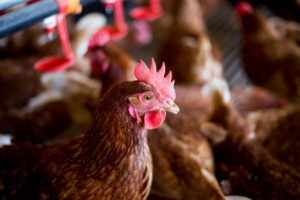
UK—British retail giant Tesco has announced a cage-free egg policy for its businesses in Malaysia and Thailand. By 2028, all brands of eggs sold at Tesco Malaysia and Tesco Lotus (Thailand) will come from cage-free hens. The multinational groceries and general merchandise retailer also committed to sourcing all packaged pork from sows who are not confined in gestation crates by 2027.
Tesco is the first retailer in Southeast Asia to commit to selling exclusively cage-free eggs. It currently operates more than 2,000 stores in Thailand and Malaysia.
This announcement comes after working with Humane Society International, one of the largest animal protection organizations in the world, and other organizations. Dawn Neo, HSI’s corporate outreach manager for farm animal welfare in Asia, said: “We applaud Tesco for leading the transition towards higher animal welfare standards in Malaysia and Thailand. This move will improve the lives of millions of animals, and we look forward to continuing to work with the company to implement this policy.”
Tesco’s operations in the UK and Central Europe have already committed to selling 100% cage-free eggs by 2025.
In Asia, egg-laying hens are typically confined in wire battery cages so small that hens cannot even fully stretch their wings. Cage-free systems generally offer higher animal welfare levels, as they provide the animals room to move around freely, and express important natural behaviours such as foraging, perching, dustbathing and laying their eggs in nests.
Tesco joins hundreds of food and hospitality companies that have pledged to switch to using 100% cage-free eggs in their supply chains globally, including Accor, Hyatt Hotels, Marriott International, Sodexo, Compass Group and Nestle. In Asia, industry leaders such as The Lo & Behold Group, The Privé Group, and SaladStop!, have pledged to do the same.
END
Media Contact: Hwee Theng, asiaevents@hsi.org
Dulcé Café and Wiesenhof embrace global plant-based food trend and join HSI’s Green Monday South Africa movement
Humane Society International / Africa
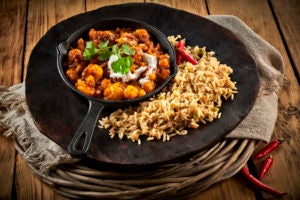
CAPE TOWN – Dulcé Café and Wiesenhof have teamed up with Humane Society International/Africa to join the global movement towards more plant-based, sustainable food by launching three new delicious meat- and dairy-free dishes for their winter 2019 menus. The restaurant chains’ decision to introduce more plant-based food offerings was inspired by HSI/Africa’s Green Monday SA meat-reduction initiative, encouraging South Africans to eat plant-based at least one day every week to improve their health, reduce their carbon footprint, and make a positive difference to the lives of farm animals.
According to the International Food Information Council Foundation’s 2019 Food and Health Survey, one quarter of survey participants said that they eat more plant-based protein than they did 12 months ago. In another poll, which questioned 850 chefs, catering managers, business owners, and kitchen staff, vegan food was rated a top restaurant trend in 2019, as 25 percent of diners are choosing vegan and vegetarian options.
Leozette Roode, media and outreach manager for HSI/Africa, said: “With more South Africans increasing their plant-based food consumption, eating green is going mainstream. While most South Africans aren’t necessarily adopting a completely vegan lifestyle, they are reducing their consumption of animal products and noticing the health benefits alongside the positive environmental and animal welfare impacts. Retailers and restaurateurs have realised this change in consumer preferences, too, and are embracing the opportunity to put more meat- and dairy-free options on their menus. The launch of Dulcé Café and Wiesenhof’s plant-based menu options sets a great example, and HSI/Africa is pleased to have been part of its development, communication and implementation.”
Kobus Wiese, the former South African rugby union player and owner/founder of the Wiese Coffee Holdings Group, said, “Wiese Coffee Holdings cares for the health of our customers, our environment and Africa’s animals. We welcome the global trend toward plant-based foods and are thrilled to endorse Humane Society International/Africa’s Green Monday SA initiative. Throughout our operations we try to reduce our carbon and water footprint and the impact our restaurants have on the environment. Our plant-based options, which are offered on both Dulcé Café and Wiesenhof menus, include Arrabiata Mash Crepes smothered in a spicy napolitana sauce and topped with sautéed onions, mushrooms and cocktail tomatoes, a warming Lentil and Cauliflower Curry with savoury brown rice and a fresh, high-protein Lentil, Chickpea and Avocado salad that can be enjoyed as a shared side or a main. All three dishes are delicious, and we encourage our customers to order and eat the green options – especially on Green Mondays. Together, we can make a positive difference.”
Many benefits come from a greener diet. Numerous studies indicate that a diet rich in plant-based foods can help improve our health, and that people who eat fewer animal products have lower rates of obesity, high blood pressure, diabetes, arthritis and cancer. Our carbon footprint and water use are also greatly reduced on a plant-based diet, as farming animals requires significantly more water and produces a lot more greenhouse gasses than farming vegetables and grains. Finally, replacing meat, milk and eggs also benefits farm animals, millions of whom spend their entire lives in cages or crates where they are unable to exercise, engage in their natural behaviours and often even turn around because of lack of space.
The Green Monday menu options will be available at all Dulcé Café and Wiesenhof restaurants nationwide from 1 August 2019. Visit https://wcholdings.co.za to find the closest outlets. For more information on the Green Monday SA movement and programs implemented in South Africa, visit www.greenmondayza.org. For information on the benefits of a plant-based diet and for plant-based recipes to cook at home, visit www.greenmonday.co.za.
HSI/Africa: Media and Outreach Manager Leozette Roode, mobile +2771 360 1004, lroode@hsi.org
